January 2020 national eResearch newsletter
Welcome to the January 2020 AeRO eResearch Newsletter
Message from the AeRO CEO
Our thoughts are with all those affected by the bushfires, many of whom will not be returning to a business-as-usual January.
We hope to release the C3DIS program by the end of this week and rather than provide the many speakers and contributors with gifts, we will make a charitable donation to a bushfire appeal. For those who have received an email about their submission please do accept / reject quickly so we can make any second round offers. Lastly, if you require funding assistance do consider applying through the AeRO Scholarship Fund.
Sam Moskwa – AeRO CEO
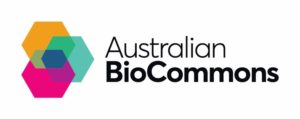 |
Bioinformatics Webinars: from 20-Jan
The Australian BioCommons webinar series covers a wide range of bioinformatics topics from local and international speakers. These upcoming webinars are now available for registration:
Info and registrations: https://www.biocommons.org.au/events. |
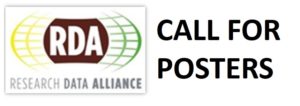 |
RDA in Melbourne: Poster Submissions Close 29-Jan
There’s still time to submit your poster (at https://www.rd-alliance.org/15th-plenary-call-posters) and co-located events as the submission deadline has been extended to 29 January 2020, 23:59 UTC. A poster competition will take place where attendees will be able to express their preference for the top 3 posters.
Register today at https://www.rd-alliance.org/15th-plenary-registration, and we look forward to seeing you in Melbourne. |
 |
C3DIS Workshop and Conference Registrations Now Open – Earlybird by 31-Jan
With an exciting workshop and conference program on offer, register before 31 January to save with earlybird discounts. Discounts available for whole conference, day registrations and special discounts for students.
C3DIS Collaborative Conference on Computational and Data Intensive Science 2020 (C3DIS 2020) 16–20 March at the Melbourne Convention and Exhibition Centre. C3DIS aims to build a national community of practice of scientists, researchers, and computing, data and information management specialists from public sector research organisations, to share in producing science outcomes using large scale, complex computations and analyses over massive data sets.
More info at http://www.c3dis.com/registration. |
 |
RDA Webinar on Research Data Science Skills: 4-Feb
Register for the RDA webinar, 4 February 16:00AEDT, on foundational research data science skills for early career researchers. Hugh Shanahan will present the curriculum and example materials developed by the RDA/CODATA Summer Schools in Data Science and Cloud Computing in the Developing World WG to give Early Career Researchers (ECR’s) the foundational skills in Data Science to work with their data. This curriculum combines technical skills, such as Software Carpentry, with responsible research practices such as Open and Responsible Research.
TBA on the RDA Website at https://www.rd-alliance.org/plenaries-events/webinars/upcoming-webinars. |
 |
Forum for Research Students, Brisbane: 7-Feb
The Characterisation Community is organising a University of Queensland based Forum for Research Students. An invitation to attend is issued for anyone who is interested in the topic of “Research Data Culture”. To be data-driven requires an overarching data culture that couples several elements, including high-quality trusted data, broad and relevant access, data literacy and fit data-driven decision-making processes.
|
 |
Automating Neuroimaging Workflows with Python, Sydney: 10-Feb
The Characterisation Community and the National Imaging Facility are organising the second version of the “Automating Neuroimaging workflows with Python” at Sydney Uni. Anyone working with automating pipelines will benefit from attending.
|
 |
CarpentryConnect, Dunedin: 11-Feb
The day before the eResearchNZ 2020 conference, New Zealand’s first CarpentryConnect is happening in Dunedin, New Zealand. Co-hosted by the University of Otago and NeSI. The event will be a gathering of Carpentries communities from across New Zealand and abroad, with a focus on enhancing community networks and sharing successes and challenges.
See https://www.eventbrite.com/e/nz-carpentry-connect-tickets-79982719467. |
 |
eResearch NZ 2020 Programme Now Live: 12-Feb
In 2020, our theme of United in Data will highlight the challenges and solutions associated with the management, sharing, analysis and visualisation of data; issues that are of fundamental importance across the breadth of the research landscape. In particular, we will bring together data-focused researchers across disciplines and communities who are exploring the ways that data science and associated technologies can be used to support and advance research outcomes in NZ and internationally.
Connect with the trans-Tasman eResearch communities on 12-14 February 2020 in Dunedin, NZ! More information at: https://www.eresearchnz2020.org.nz/. |
 |
International Data Leaders & Experts at eResearch NZ 2020
Alongside the announcement of its preliminary programme, four headline keynotes have been confirmed for eResearch NZ 2020, drawing perspectives from research and data communities in North America and across Australasia. International guests Amber Budden from DataONE and Micaela Parker of the Academic Data Science Alliance will be joined by Rosie Hicks of the Australian Research Data Commons (ARDC) and Richard Dean from New Zealand’s Institute of Environmental Science and Research (ESR).
There’s still time to register and join the event in Dunedin, NZ from 12-14 February 2020. More details: https://www.eresearchnz2020.org.nz/keynotes/. |
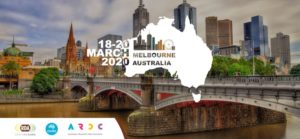 |
RDA in Melbourne: Earlybird Ends 14-Feb
Be quick and catch the RDA early bird registration offer ending 14 February 2020. Day rates, as well as reduced rates for students and citizens of lower to lower-middle income countries are also available (see http://www.oecd.org/dac/financing-sustainable-development/development-finance-standards/DAC_List_ODA_Recipients2018to2020_flows_En.pdf).
The online program will be available on 31 January 2020 and will include the breakout session schedule and confirmed speakers and if you are still unsure about attending watch this highlights video (at https://www.youtube.com/watch?v=Xplae800pLM&feature=youtu.be) from the last plenary in Helsinki. |
 |
Open Data Day – Register Your Event – Mini-Grants Available: 7-Mar
Open Data Day is a global annual celebration of open data, held this year on Saturday, 7-March. For the tenth time, groups from around the world will create local events using open data in their communities. It is an opportunity to show the benefits of open data and encourage the adoption of open data policies in government, business and civil society.
Mini-grants are on offer for the following key areas:
To register an event or apply for a mini-grant https://opendataday.org/. |
 |
C3DIS Invited Speakers: 16-Mar
There’s a stellar line-up of international speakers for C3DIS (Collaborative Conference on Computational and Data Intensive Science) – 16-20 March – Melbourne.
Speakers include:
Speaker BIOs at http://www.c3dis.com/2020-invited-speakers. |
| eResearch Support Registry
The Australian and NZ eResearch communities have access to a large and growing number of eResearch support initiatives, hosted at various universities and other research agencies that offer a range of support options that range from options supported and funded by institutions through to community-driven initiatives such as Hacky Hours.
To make it easier to find support, AeRO has developed the National eResearch Support Registry at http://aero.edu.au/national-eresearch-support-registry/. AeRO invites all eResearch support providers to list their services to help better support their research communities. |
|
 |
eResearch Champions
Many eResearch support initiatives are run by the sector’s fabulous eResearch Champions who are the face of eResearch – they provide frontline support and often facilitate initiatives such as Data Clinics, Hacky Hours, and other research data support activities, and are a vital contact point for researchers.
AeRO’s eResearch Champions initiative is designed to help the community build itself – augmenting existing support communities.
As well as connecting you into an engaged supportive community, we can help identify and support training and professional development opportunities to assist your role. Applying to be a Champion is easy and free – so apply now! http://aero.edu.au/champions/. |
 |
Carpentries 2020 Executive Council
The Carpentries 2020 Executive Council will assume responsibility of governance on Feb 1st, after community elections on last Dec 2019 (see https://carpentries.org/blog/2020/01/executive-council-results/ and https://static.carpentries.org/governance/). Dr Paula Andrea Martinez will represent the region of Australia and New Zealand on the Executive Council. |
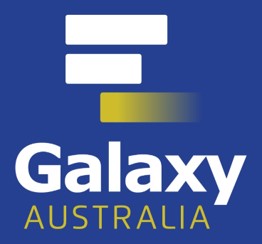 |
Galaxy Australia Supports Asian Bioinformatics Outreach
On 22 December 2019 the Galaxy Australia service and team continued their efforts to support international bioinformatics efforts at the International Symposium on Bioinformatics 2019 in Jalandhar, India (https://www.hrmmv.org/INSYB2019). Dr Gareth Price presented via Zoom on Galaxy Australia – lessons learnt from running a nationally resourced service. Also, 75 people attended an online workshop with Monash University’s Dr Sonika Tyagi using Galaxy Australia, with monitoring from Melbourne and Brisbane.
|
 |
New Training Webinars for Building Research Computing Skills
Following the successful pilot of its 2019 ‘Quick Tips’ training webinar series, New Zealand eScience Infrastructure (NeSI) is pleased to unveil a new programme of digital skills training webinars for early 2020. Topics range from troubleshooting common errors on high performance computers (HPC), to improving the efficiency of your code, to using machine learning and data science tools in an HPC environment.
More details: https://www.nesi.org.nz/news/2019/12/nesi-unveils-new-training-webinars-2020. |
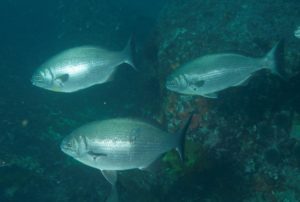 |
Making Waves in Global Food Production Technology
The world’s increasing demand for food generates a powerful economic imperative for innovation in food production technology. To address this challenge, researchers from New Zealand and Australia are working with powerful computing resources and more than 1 TB of sequence data to create new economic opportunities and contribute to more sustainable and environmentally-friendly practices in food supply chain processes.
More details: https://www.nesi.org.nz/case-studies/making-waves-global-food-production-technology. |
| Tracking Moths for Mountain Pygmy-Possum Survival
Federation University Australia’s Centre for eResearch and Digital Innovation (CeRDI) has collaborated with Zoos Victoria to support research and conservation efforts to aid the critically endangered Mountain Pygmy-possum (www.zoo.org.au/possums). The Moth Tracker web application, developed by CeRDI, enables the public to upload sightings of the Bogong Moth during its seasonal migration. Bogong Moths are an essential food source for the Mountain Pygmy-possum. The data should help to ensure the survival of Mountain Pygmy-possums.
The Moth Tracker app is hosted on the State Wide Flora and Fauna Teams (SWIFFT) website (https://www.swifft.net.au/mothtracker/).
For further information about this project, see the CeRDI Spring newsletter: http://www.cerdi.edu.au/cb_pages/news/CeRDINewsletter4Spring2019.php#2. |
|
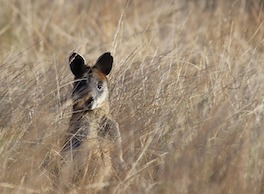 |
QCIF to Lead EcoCommons Australia
ARDC announced last month that it will fund the EcoCommons Australia project with QCIF as the lead agent.
EcoCommons Australia will bring together datasets and tools for researchers and decision-makers concerned with all aspects of biodiversity and ecology, and track how the end results were derived.
Read more: https://www.qcif.edu.au/index.php/news/629-qcif-to-lead-ecocommons-australia. |
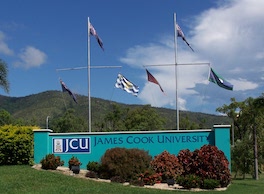 |
UQ Data Storage Fabric Extended to JCU
James Cook University has adopted the University of Queensland-developed data storage fabric, MeDiCI, as the replacement for its end-of-life storage infrastructure.
MeDiCI (Metropolitan Data Caching Infrastructure) is responsible for the seamless transfer of data between caches at JCU, UQ and offsite data centres, so researchers do not need to manually transfer data.
MeDiCI delivers ultra-fast multi-site data access on demand without user involvement, saving researchers valuable time to focus on their work.
Read more: https://www.qcif.edu.au/index.php/news/631-uq-s-medici-data-storage-fabric-extended-to-jcu. |
 |
SC19: Supercomputing is Getting Denser and More Powerful
Jake Carroll, Chief Technology Officer of the University of Queensland’s Research Computing Centre, reports about the IT industry trends from the international supercomputing conference, SC19, held 17–22 November in Denver, Colorado, USA. “Supercomputing is getting denser, more powerful and higher performance per square metre of space being consumed. However, it is all coming at a cost,” said Jake.
Read more: https://rcc.uq.edu.au/article/2019/12/sc19-%E2%80%9Csupercomputing-getting-denser-and-more-powerful%E2%80%9D. |
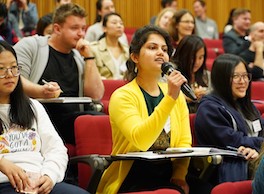 |
Winter School in Mathematical and Computational Biology: 6-Jul
Save the date for the Winter School in Mathematical and Computational Biology, 6–10 July 2020, at The University of Queensland.
The Winter School is designed to introduce bioinformatics, mathematical and computational biology to advanced undergraduate and postgraduate students, postdoctoral researchers and others working in the fields of biology, mathematics, statistics, computer science, information technology, complex systems analysis, and chemical and medical sciences and engineering.
More information: https://rcc.uq.edu.au/event/3009/winter-school-mathematical-and-computational-biology-2020. |
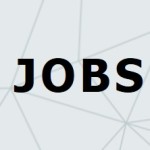 |
eResearch Jobs
AeRO provides details of the latest eResearch job opportunities in the sector. Jobs are posted immediately to https://twitter.com/AeRO_eResearch, and the website at http://aero.edu.au/jobs/ is also updated. This is a free service for the whole eResearch community – to advertise a position, simply email loretta@aero.edu.au. Here’s a sample of current vacancies: Research Fellow (PET and MRI Neuroimaging Postdoc), HPC Specialist Data Scientist, Cloud Development and Operations Engineer, eResearch Engagement Specialist, Cybersecurity Lecturer, Senior eResearch Platform and Services Engineer. |
Contributions
This newsletter is based on contributions provided by members of the eResearch community, and draws on news articles and newsletters published across the sector. The Newsletter is published around the 16th of each month.
Please send any contributions (max. 100 words, plus a link and image) or pointers to any other relevant articles or newsletters to editor@aero.edu.au
Archives of these Newsletters are held at http://aero.edu.au/newsletters/.
Click HERE to add yourself to the eResearch Mailing List.
Thanks,
—AeRO Newsletter Editor

